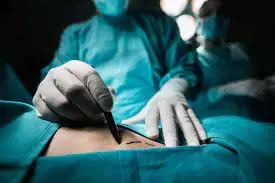- Home
- Medical news & Guidelines
- Anesthesiology
- Cardiology and CTVS
- Critical Care
- Dentistry
- Dermatology
- Diabetes and Endocrinology
- ENT
- Gastroenterology
- Medicine
- Nephrology
- Neurology
- Obstretics-Gynaecology
- Oncology
- Ophthalmology
- Orthopaedics
- Pediatrics-Neonatology
- Psychiatry
- Pulmonology
- Radiology
- Surgery
- Urology
- Laboratory Medicine
- Diet
- Nursing
- Paramedical
- Physiotherapy
- Health news
- Fact Check
- Bone Health Fact Check
- Brain Health Fact Check
- Cancer Related Fact Check
- Child Care Fact Check
- Dental and oral health fact check
- Diabetes and metabolic health fact check
- Diet and Nutrition Fact Check
- Eye and ENT Care Fact Check
- Fitness fact check
- Gut health fact check
- Heart health fact check
- Kidney health fact check
- Medical education fact check
- Men's health fact check
- Respiratory fact check
- Skin and hair care fact check
- Vaccine and Immunization fact check
- Women's health fact check
- AYUSH
- State News
- Andaman and Nicobar Islands
- Andhra Pradesh
- Arunachal Pradesh
- Assam
- Bihar
- Chandigarh
- Chattisgarh
- Dadra and Nagar Haveli
- Daman and Diu
- Delhi
- Goa
- Gujarat
- Haryana
- Himachal Pradesh
- Jammu & Kashmir
- Jharkhand
- Karnataka
- Kerala
- Ladakh
- Lakshadweep
- Madhya Pradesh
- Maharashtra
- Manipur
- Meghalaya
- Mizoram
- Nagaland
- Odisha
- Puducherry
- Punjab
- Rajasthan
- Sikkim
- Tamil Nadu
- Telangana
- Tripura
- Uttar Pradesh
- Uttrakhand
- West Bengal
- Medical Education
- Industry
CPAP may not prevent pneumonia, re-intubation, and death after major abdominal surgery: LANCET

Recent research published in The Lancet Journal has revealed that continuous positive airway pressure (CPAP) did not reduce the incidence of pneumonia, endotracheal re-intubation, or death after major abdominal surgery.
Respiratory complications are an important cause of postoperative morbidity. Therefore, Rupert Pearse and colleagues from the PRISM trial group aimed to investigate whether continuous positive airway pressure (CPAP) administered immediately after major abdominal surgery could prevent postoperative morbidity.
The PRISM trial was an open-label, randomised, phase 3 trial done at 70 hospitals across six countries. Patients aged 50 years or older who were undergoing elective major open abdominal surgery were randomly assigned (1:1) to receive CPAP within 4 h of the end of surgery or usual postoperative care.
Patients were randomly assigned using a computer-generated minimisation algorithm with inbuilt concealment. The primary outcome was a composite of pneumonia, endotracheal re-intubation, or death within 30 days after randomisation, assessed in the intention-to-treat population. Safety was assessed in all patients who received CPAP.
The following results were observed-
a. 4806 patients were randomly assigned (2405 to the CPAP group and 2401 to the usual care group), of whom 4793 were included in the primary analysis (2396 in the CPAP group and 2397 in the usual care group).
b. 195 (8·1%) of 2396 patients in the CPAP group and 197 (8·2%) of 2397 patients in the usual care group met the composite primary outcome (adjusted odds ratio 1·01 [95% CI 0·81–1·24]; p=0·95). c. 200 (8·9%) of 2241 patients in the CPAP group had adverse events.
d. The most common adverse events were claustrophobia (78 [3·5%] of 2241 patients), oronasal dryness (43 [1·9%]), excessive air leak (36 [1·6%]), vomiting (26 [1·2%]), and pain (24 [1·1%]).
e. There were two serious adverse events: one patient had significant hearing loss and one patient had obstruction of their venous catheter caused by a CPAP hood, which resulted in transient haemodynamic instability.
Hence, the authors concluded that " CPAP did not reduce the incidence of pneumonia, endotracheal re-intubation, or death after major abdominal surgery."
Although CPAP has an important role in the treatment of respiratory failure after surgery, routine use of prophylactic post-operative CPAP is not recommended, they further added.
Dr. Nandita Mohan is a practicing pediatric dentist with more than 5 years of clinical work experience. Along with this, she is equally interested in keeping herself up to date about the latest developments in the field of medicine and dentistry which is the driving force for her to be in association with Medical Dialogues. She also has her name attached with many publications; both national and international. She has pursued her BDS from Rajiv Gandhi University of Health Sciences, Bangalore and later went to enter her dream specialty (MDS) in the Department of Pedodontics and Preventive Dentistry from Pt. B.D. Sharma University of Health Sciences. Through all the years of experience, her core interest in learning something new has never stopped. She can be contacted at editorial@medicaldialogues.in. Contact no. 011-43720751
Dr Kamal Kant Kohli-MBBS, DTCD- a chest specialist with more than 30 years of practice and a flair for writing clinical articles, Dr Kamal Kant Kohli joined Medical Dialogues as a Chief Editor of Medical News. Besides writing articles, as an editor, he proofreads and verifies all the medical content published on Medical Dialogues including those coming from journals, studies,medical conferences,guidelines etc. Email: drkohli@medicaldialogues.in. Contact no. 011-43720751


